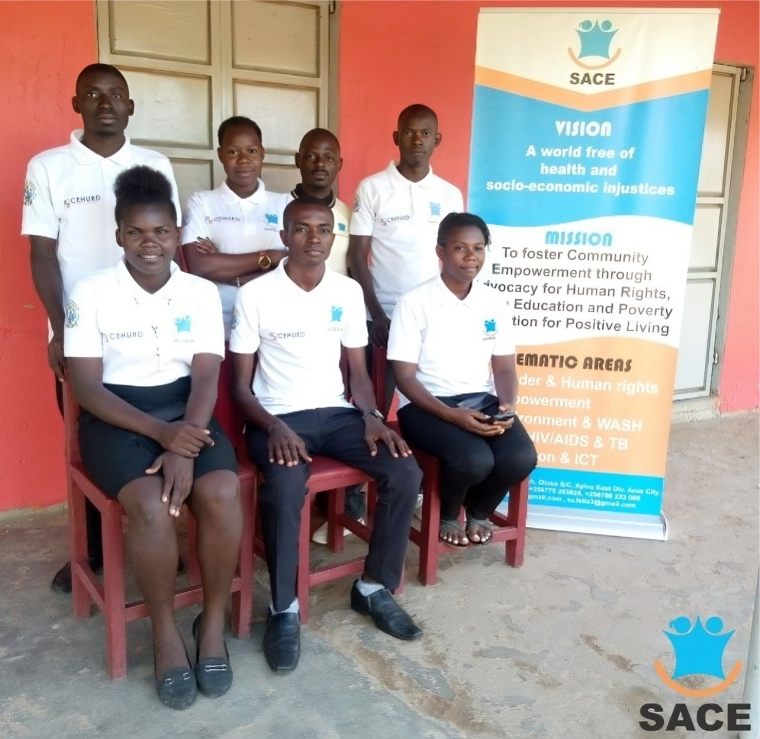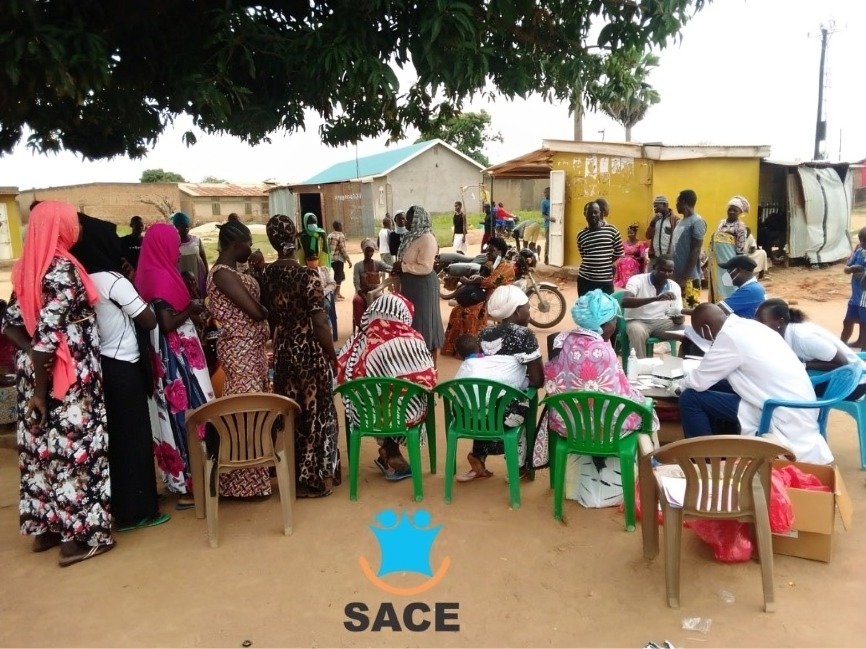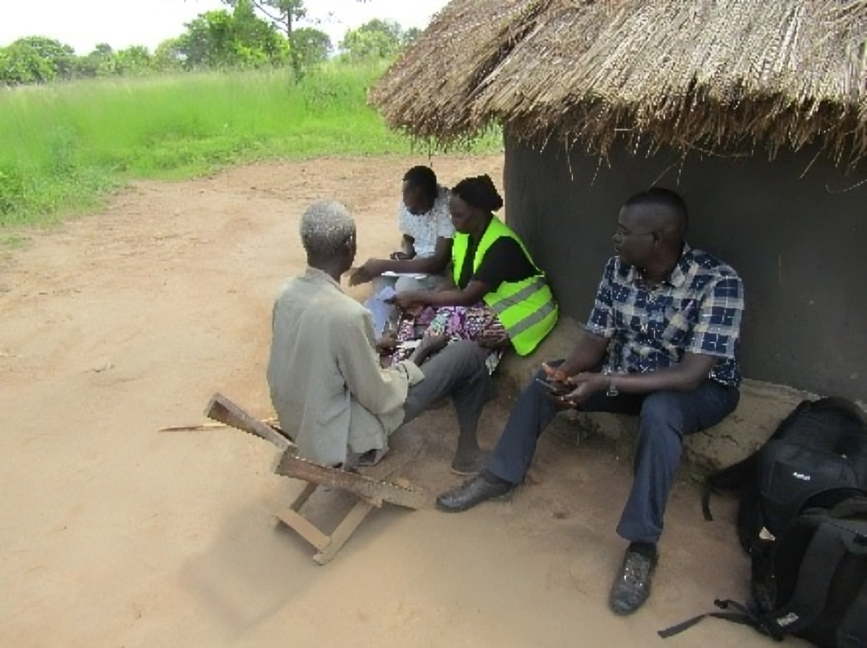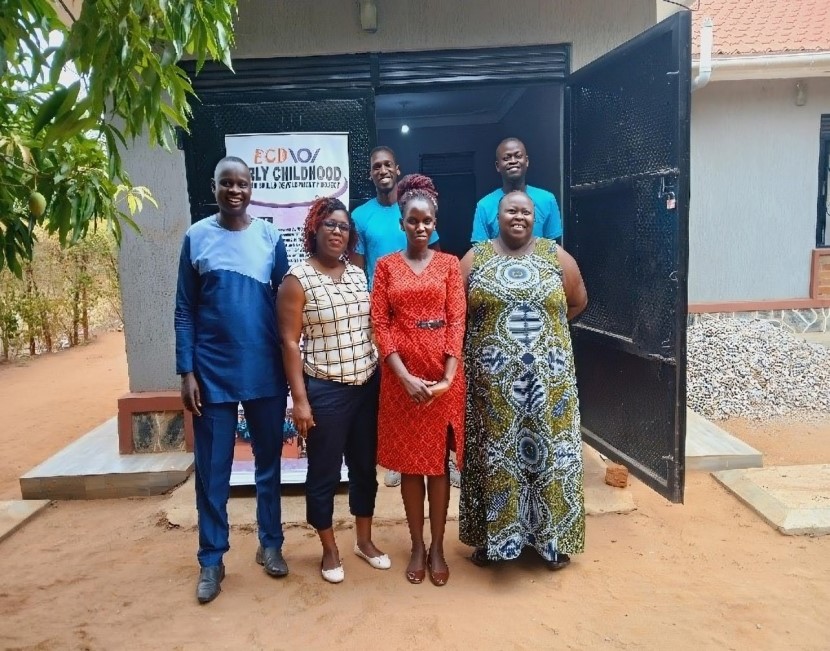On behalf of STRIDE Action Community Empowerment (SACE), I would like to extend my deep appreciation to our partner and subrecipient, the Center for Health, Human Rights and Development (CEHURD) with support from The AIDS Support Organisation (TASO). Their mentorship, supervision, and constant support under the GC6 and GC7 capacity-building grants have enabled our organisation to achieve massive milestones.
When this journey began in 2022, SACE was a small community-based organisation with limited systems and resources. Today, after three years of guidance and training, our capacity has grown by about 90 percent across programme implementation, finance management, monitoring and evaluation, governance, leadership, reporting, and resource mobilisation. We have moved from a 25 percent performance rate to operating at a level that positions us among the fastest-growing CBOs in the West Nile region – and we are now preparing to transition into a fully registered NGO.
The project we implemented is titled Supporting Uganda’s Response to HIV/AIDS and TB Reduction Strategy, delivered in Arua City’s Central Division with CEHURD as our Sub-recipient (SR) and TASO Uganda as the Principal Recipient (PR).
What GC6 and GC7 Meant for SACE
The two grant cycles focused on strengthening CBOs through training in financial management, procurement, project planning and management, M&E, leadership and governance, donor reporting, fundraising, and resource mobilisation. Our team took part in workshops in Lira and an internship at TASO Jinja, which helped us gain practical, hands-on experience.
During implementation, we worked closely with community health structures – VHTs, peer educators, PLHIV networks, health advocates – as well as the Arua City Health Department, radio stations, and local leaders. CEHURD’s direct mentorship ensured that we applied every skill we learned. All funds were effectively and efficiently used with the philosophy: fewer resources, stronger systems, and visible outcomes.
The support also widened our partnership network. We signed MoUs with four local NGOs, secured small grants from Network for Active Citizens (NAC) and the Civil Society Strengthening Network (CSSN), and even led a consortium of CBOs in West Nile. With the skills we gained, SACE developed a concept on organisational capacity strengthening, which was funded by the Internal Risk Management Group (IRMG) through Plan International, with support from the Swedish Embassy.
We also joined new networks, including Charter for Change (C4C), the West Nile Regional Civil Society Network, and the Green Finance Hub, which connects organisations shaping global conversations on health and green financing.
Before GC6 and GC7, SACE had only four organisational policies. We now have 23 – along with a strategic plan, advocacy strategy, and a resource mobilisation strategy. Our internal financial controls are stronger, and we have adopted a digital cashless system through ‘Yo! Uganda’. These are big steps for a community organisation that once operated with no structured policies.
Impact in the Community
Under the project, SACE carried out a range of activities that reached thousands of people:
Community dialogues: 1,550 participants, HIV testing: 802 people tested (14 positive), Home visits for adherence counselling: 56, Contact tracing: 290 contacts, Referral and linkage to care: 14 clients, Follow-up of ART clients: 37, Community radio sessions: 8, Support supervision of VHTs and health champions: 3
These activities have shifted attitudes, improved knowledge, and begun changing deeply rooted social norms. Communities now have a clearer understanding of HIV, TB, and malaria – how they are transmitted, prevented, and treated.
Stories That Show Why This Work Matters
A 25-year-old man shared how he spent a decade engaging in unprotected sex, believing his body size protected him from HIV. He avoided testing and looked down on people living with HIV. After attending a SACE outreach session, he finally tested – and was relieved to find he was negative. That moment became a turning point in his life.
A 21-year-old lady opened up about engaging in transactional sex due to poverty. “I have been sleeping with many men, and this was not my calling, it was because of the poverty levels at home, we hardly ate two meals a day, even managing my own needs as a girl.” She believed myths like drinking soda or urinating after sex could protect her. She tested negative but was overwhelmed by the life she was living. Our team spent time with her, helping her see that she can even be successful beyond surviving and that she deserved more than survival driven by desperation. Her story showed us why young people need safe spaces to share their fears and get support.
During the GC7 TB project, a woman diagnosed with TB returned home to a husband who refused to share a bed with her, believing TB was transmitted through sex. It was a clear reminder of how much misinformation still exists. Through intensified TB education, we were able to correct these myths and help the family understand the real routes of transmission and treatment.
These stories show the urgent need for deeper investment in mindset change, behaviour change, and community awareness.
A Journey that Transformed SACE
Looking back to 2022, SACE had limited systems and minimal organisational structure. Today, in 2025, we are a stronger, more confident organisation capable of managing bigger grants with limited supervision. The GC6 and GC7 capacity-building grants were a turning point for us, and a clear example of how CEHURD continues to advance the localization agenda by empowering grassroots organisations to lead.
This project has shaped who we are becoming. It strengthened our team, improved community health systems, and expanded our reach. We hope future support will also include resources that help organisations like ours grow operationally, not just technically. We remain ready to work with CEHURD to build a future where communities are free from health and socio-economic injustices. When the youth are empowered, the nation stands on stronger pillars.
Compiled by:
Tukashaba Felix
Executive Director, STRIDE Action Community Empowerment (SACE) Contact: +256 786 561 399
Email: tu.felix3@gmail.com





